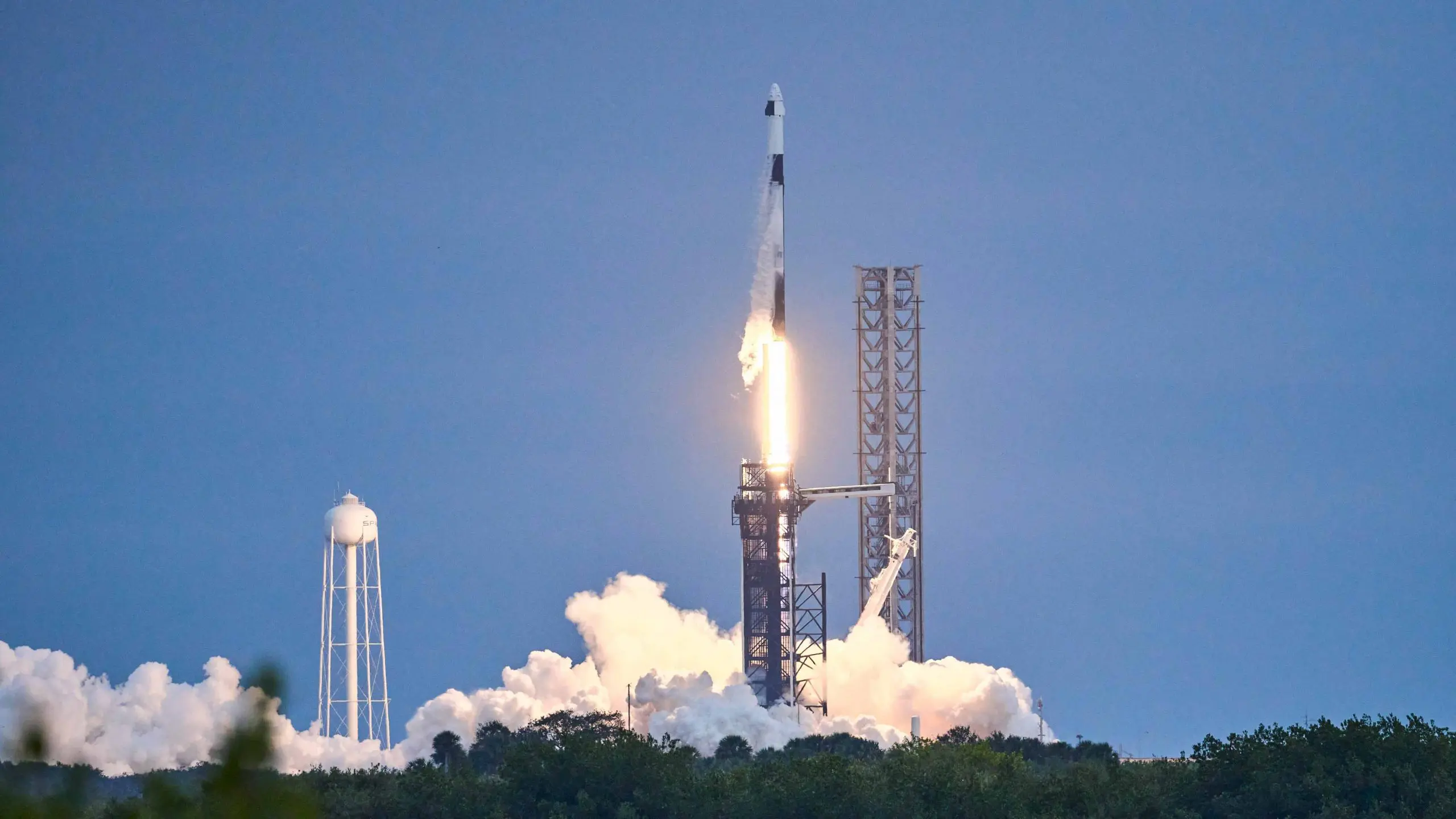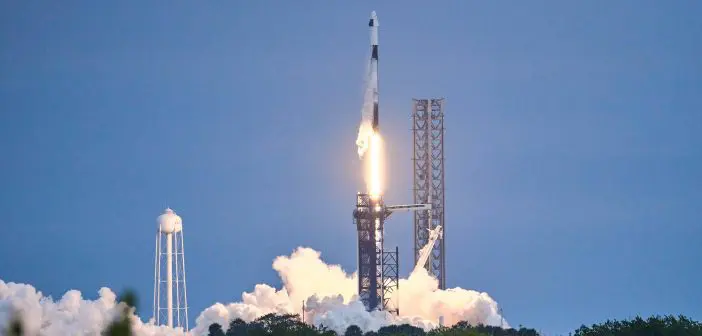
SpaceX’s Falcon 9 rocket remains grounded on US Federal Aviation Administration orders after a launch went awry earlier this month and deployed 20 Starlink satellites into the wrong orbit. One potential consequence is “schedule impacts” for NASA’s planned crewed missions using SpaceX rockets.
A now routine launch of a Falcon 9 rocket on July 12, 2024, from California’s Vandenberg Space Force Base was uneventful until rocket’s second stage failed to relight for its second burn. Cameras had observed unusual amounts of ice accumulating around the engine during the first burn due to an apparent liquid oxygen leak.
The satellites were deployed from the upper stage into the lower initial parking orbit with a perigee of 135 kilometres, less than half the targeted perigee. SpaceX termed the release spot an enormously high drag environment. “At this level of drag, our maximum available thrust is unlikely to be enough to successfully raise the satellites,” SpaceX said in the wake of the malfunction.
As a result, the satellites burned up as they re-entered the Earth’s atmosphere. The rocket’s second went on to experience a “rapid unscheduled disassembly” – space jargon for an explosion. Industry insiders say it is SpaceX’s biggest setback since a Falcon 9 rocket exploded in 2016 It also ends a run of more than 300 successful Falcon 9 launches.
The FAA grounded the rocket the following day. Less than 96 hours after the incident, SpaceX asked the FAA to declare it did not represent a public safety risk, thereby clearing the way for Falcon 9 rockets to keep operating while the investigation continues. The FAA has yet to agree to the request.
SpaceX was on track to conduct around 100 Falcon 9 launches in 2024 and has conducted about 70 of that number so far. Open source data show SpaceX had three Falcon 9 launches scheduled this week alone – the Starlink Group 10-4 launch from Cape Canaveral on July 24, the Group 9-4 launch from Vandenberg on July 25, and the Group 10-9 launch from Kennedy on July 26.
In addition, SpaceX was preparing to launch its Polaris Dawn Crew Dragon mission in late July or early August. The mission will send four private astronauts into orbit to conduct the first commercial spacewalk using the company’s newly designed spacesuits. All these launches are now indefinitely on hold.
“We knew this incredible run had to come to an end at some point,” Tim Mueller, SpaceX’s former vice president of propulsion, said online after the botched launch.
Meanwhile, NASA is in a bind. The Falcon 9 rocket is the only US-made rocket capable of carrying astronauts to the International Space Station, and it was due to operate the Crew-9 mission in mid-August. NASA says crew safety and mission assurance are its top priorities so it will review that launch date.
“(NASA will) provide updates on the agency’s mission, including potential schedule impacts, if any, as more information becomes available,” a spokesperson said. Boeing’s Starliner spacecraft, a potential competitor to Falcon 9, conducted a crewed test flight to the ISS last month, but the two-person crew has been unable to return to Earth due to problems with the spacecraft.
SpaceX has conducted 364 Falcon 9 launches over 14 years, with 361 full successes. They’ve deployed around 7,000 Starlink satellites, among others. This month’s lost satellites were estimated to be worth around USD10 million.





